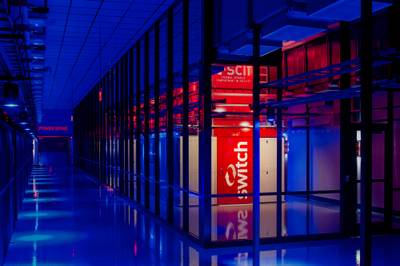
Shutterstock
Wednesday, June 15, 2016 | 2 a.m.
Seeking to help Nevada compete in a world increasingly ruled by statistics and strings of code, UNLV is proposing an interdisciplinary institute to broaden its big-data program and forge partnerships with local industries. Such an institute could aid regional economic development by becoming the go-to resource for data analytics, according to the proposal the university prepared for a state advisory board.
On Thursday, UNLV officials will ask that advisory board to consider a $500,000 grant for the envisioned Institute for Big Data. Then the board will present its recommendation to the Governor’s Office of Economic Development, which will decide whether to fund the project. The university expects to ask for more funding in the future.
“The institute will be working very closely with industry,” said Justin Zhan, a UNLV computer scientist who would serve as the executive director if the institute is approved. “That’s a major piece.”
The Institute for Big Data represents the latest effort to expand UNLV’s infrastructure for data analytics. Last year, the university turned on a 26,000-core supercomputer, known as Cherry Creek II, that helps researchers do complex computation with large data sets. One use could be modeling elaborate systems, from hydraulic fracturing to supermassive black holes, with much greater precision. UNLV also has a closed-fiber connection with local data company Switch — where Cherry Creek is stored — and operates additional high-speed computers.
This institute would expand both that physical footprint and the programming around it. The proposed goals include creating a platform for big-data computation and a new system for data storage. The institute also would work with industry partners to meet specific data needs. It could, for instance, create a specialized data system for gaming or a platform geared toward testing autonomous vehicles.
In its proposal, UNLV identified four industries it plans to work with — gaming, hospitality, health care and advanced mobility — and listened a number of partners who have expressed interest in the program. They include the Cleveland Clinic Lou Ruvo Center for Brain Health, the Las Vegas Sands Corp. and the Parsons Corp., an engineering and construction firm. The university is already working on a project with the Center for Brain Health that is designed to use data, such as genetic information, to reduce the number of patients in clinical trials, said Tom Piechota, a vice president for research.
“This allows us to take that forward,” he said.
Once the advisory board makes its recommendation, it could take several weeks for the Governor’s Office of Economic Development to decide whether to award a grant through its Knowledge Fund, said Steve Hill, who directs the economic development office. He said the office is looking for UNLV to identify commercial partners in all of its targeted industries.
“We think it’s a good idea,” Hill said. “But we want to see companies think it’s a good idea as well.”
The $10 million Knowledge Fund, created in 2011, allows the office to allocate funding to higher-education programs that encourage research and development. In 2013, UNLV received a Knowledge Fund grant to form the Center for Gaming Innovation, an incubator for developing new casino games. And the following year, another Knowledge Grant was awarded to its Nevada Institute of Personalized Medicine, aimed at developing health care applications of genome sequencing.
If the draft proposal is any indication, it's likely that the Institute for Big Data would take on a similar role to the Center for Gaming Innovation in focusing on the formation of startup companies. According to the draft, which can still be modified, one of the goals of the institute is to see two companies created within its first five years. By 2018, organizers aim to have placed five students with companies and created 10 student internships.
Comprising seven faculty members and several students, the institute would have dedicated office space in the university’s science and engineering building. Sands, the Center for Brain Health and Parsons were among those to submit letters of support for funding the institute.


Join the Discussion:
Check this out for a full explanation of our conversion to the LiveFyre commenting system and instructions on how to sign up for an account.
Full comments policy